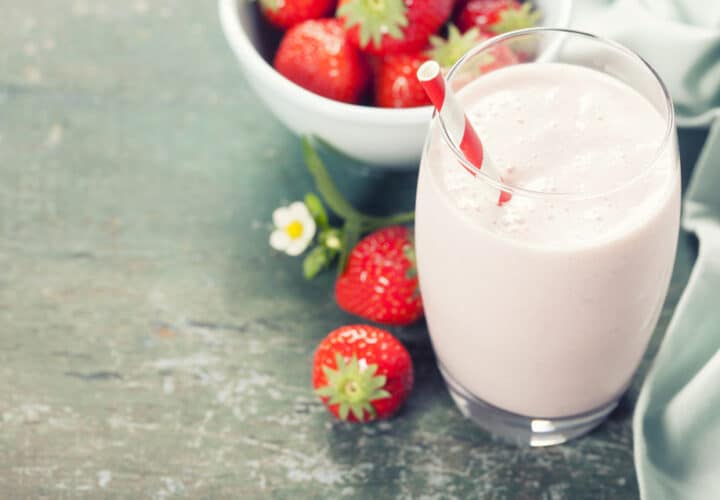A study found that closely following the MIND diet for brain health appeared to cut peoples’ Alzheimer’s risk in half. The diet’s creator discusses the research.
With its hefty serving of vegetables, whole grains, fish, poultry and wine, researchers have found that the MIND diet is heart-healthy — and good for your brain. So far, there’s no definitive evidence that these types of diets can actually directly improve brain health or prevent dementia. They will not treat or reverse Alzheimer’s symptoms. But MIND diet creator Martha Clare Morris shares that over years of research, scientists have seen that closely following the MIND diet may have lowered peoples’ risk of developing Alzheimer’s by up to 53 percent. They have also gathered evidence that it may be able to slow down the progression of some cognitive symptoms associated with Alzheimer’s.
The MIND diet involves cutting back on fats, sugars, red meats, cheese and processed foods and instead focusing on – similar to the Mediterranean diet – cooking with olive oil and eating plenty of leafy greens, vegetables, whole grains, berries, fish, poultry, nuts and beans. It also includes a glass of wine per day if recommended by your doctor and appropriate.
While the science isn’t yet established around the MIND diet’s direct effects on Alzheimer’s, dementia, and cognitive decline, for all the promising links between these diets on whole and between their individual components and good health at large, experts agree people have little to lose adopting these eating habits while the science develops.
In the meantime, Being Patient’s editor in chief Deborah Kan sat down with Morris in 2018 to catch up about her research, and to talk about the best and worst foods for keeping the brain healthier, longer.
Being Patient: What have you found in your research on the MIND diet?
Dr. Morris: I’ve been researching nutrition and the brain for over 25 years. My team and I have been studying individual nutrients, starting with antioxidants. We focused on foods’ fat composition, as well as fruits, vegetables and seafood. We found that foods in these categories were associated with slower decline in cognitive abilities and a reduced incidence of Alzheimer’s disease.
Eventually, we thought it was time to do a randomized trial. We asked people to change their diets, then studied what effects that had on their brain. We looked at what risk factors were causal in protecting their brain [whether a certain diet was behind improved cognitive abilities]. In preparation for the randomized trial, we had to come up with a diet. We put together years of research on foods that were high in nutrients and good for the brain. That’s how we came up with the MIND diet.
Before we asked people to follow the MIND diet, we provided a score to rank how well people followed the diet. We studied one population and their diet for years, then examined the questionnaires they filled out, what foods they consumed and how often. Then, we assigned a MIND score based on the foods they said they were eating. Next, we looked at their cognitive abilities over time. We found that people who scored in the top third for closely following the MIND diet had very little changes in their cognitive abilities over time. They were the equivalent of being seven and a half years younger in age, compared to people who scored the lowest. The MIND diet had a pretty dramatic effect.

Then, we looked at who developed Alzheimer’s disease. We found that people in the highest third of scores had a 53 percent reduction in the risk of developing Alzheimer’s. Even people who were in the intermediate range for adhering to the diet still had a 35 percent reduction. It was pretty exciting that we found such a strong association between diet and Alzheimer’s risk. That allowed us to go forward with our .
Being Patient: Did you build on any other diets when developing the MIND diet?
Dr. Morris: We took the backbones of the Mediterranean and DASH diets. The DASH diet was developed to prevent hypertension and lower blood pressure. The DASH and the Mediterranean diets have a lot in common and both diets have been found to help with a lot of chronic conditions, but primarily cardiovascular conditions. We modified components of each diet based on the literature that’s specific to brain health.
The Mediterranean and the DASH diets both have four or more vegetable servings per day and three or more fruit servings per day. When we looked at the literature on fruits, vegetables, cognitive decline and dementia, we found that the level of benefit was at two or more servings per day.
So for the MIND diet, we recommend two or more vegetable servings per day. We also noted that many large studies found that leafy green vegetables were healthy for the brain, so we specified that people should eat two or more servings of vegetables per day and make one of those a leafy green: spinach, kale, collards and Romaine lettuce. There are a lot of nutrients in the dark green part of plants that are shown to be important for the brain.
“Even people who were in the intermediate range for adhering
to the MIND Diet still had a 35 percent reduction. It was pretty
exciting that we found such a strong association
between diet and Alzheimer’s risk.”
When you look at studies on nutrition and the brain, fruit consumption as a general category is not associated with protecting the brain, but berries have been shown to be important for the brain. So instead of making any recommendation on fruits, we specified eating berries two to five times per week.
Being Patient: Why are do we keep hearing that berries good for the brain?
Dr. Morris: There’s been some animal models that use different berry extracts. For example, blueberries seem to be more effective for memory and cognition. Researchers fed a blueberry extract to rodents who were put through memory exercises. Then, they demonstrated that the blueberry-fed rodents had better memory function than those who didn’t eat blueberries. When they looked at their brains, after the experiment, they saw that the hippocampus, which is where memories are formed, was larger in the blueberry-fed rodents. Anthocyanin is a type of nutrient that is very high in blueberries and they found that there were higher levels of anthocyanin in the rodents’ hippocampus, who were fed the blueberries. So perhaps anthocyanin has some important function for protecting our memories and hippocampus.
What the Science Actually Says About Berries and Dementia Prevention
Being Patient: Will the ongoing research tell you whether the MIND diet is protecting against Alzheimer’s, or whether it’s simply slowing symptoms of cognitive decline?
Dr. Morris: The goal right now in the field of dementia is that, if we can delay symptoms by five years when people start to exhibit signs of dementia, it will have tremendous implications for public health, including alleviating the human cost and burden as well as the financial cost of the disease. We are planning to get additional funding to carry out the trial for a longer period of time so that we can make a conclusion about whether the MIND diet can actually prevent Alzheimer’s disease.
Being Patient: The MIND diet recommends having a glass of wine. There’s a lot of conflicting information about drinking alcohol and brain health. Why is wine included in the MIND diet?
Dr. Morris: The literature on alcohol consumption and dementia is pretty consistent—similar to heart disease. People who consume very moderate levels—anywhere above 0 drinks per week to about seven drinks per week for women, and no more than 14 drinks per week for men—have the lowest risk of dementia. However, every drink above those very moderate levels that you consume actually contributes to brain atrophy, so alcohol is harmful to neurons. For some reason, a very moderate intake appears to be healthy for the brain.

Being Patient: We hear that certain foods may be helpful for those with dementia like coconut, coffee and chocolate. Is there any evidence to support that these foods are good for our brains?
Dr. Morris: There’s no evidence that coconut oil is good for the brain. That idea was based on a compelling one-person story that caught wildfire in the public domain. There are some studies that are testing it directly and we have to wait for the results of those studies. Chocolate and caffeine have an immediate impact (especially coffee, since caffeine stimulates your system and you have a short-lived cognitive sharpness). The evidence for coffee or chocolate as being protective against developing dementia and having long-term effects, or slowing cognitive decline, just isn’t there yet.
There are some studies on chocolate that may give us better data to understand whether it has a long-term impact. I don’t know of research that shows that chocolate is bad, but like anything, if you eat a lot of it, you’re consuming a lot of calories and not getting other calories that the body needs.
Being Patient: How much can diet help someone who has already been diagnosed with Alzheimer’s?
Dr. Morris: There are so few studies that address this question and the ones that have been done are so small. That’s a field that we really need to put some resources into. It’s an important question. Can we help those who already have the disease function through dietary changes?
Being Patient: If we could design the perfect diet, what would breakfast, lunch and dinner look like?
Dr. Morris: I try to have vegetables for breakfast, lunch and dinner. One of my favorite breakfasts is a slice of whole wheat toast with some avocado slices and an egg on it. I sauté some spinach, squeeze lemon juice onto the toast, and that is delicious. For lunch, I try to eat a salad every day. You can put beans, shrimp, seafood or vegetables on it. For dinner, you can have a piece of salmon with a sweet potato and broccoli. Those three meals would provide you with a lot of brain-healthy nutrients.
This interview has been edited for length and clarity. Watch the full 2018 interview here:





I read your article, and it confirmed some of the things I have been doing.
I have alzhimers and since then I have been changing my diet to a similar diet.
It seems to be slowing it progress.
Please continue to keep my on your notification list of anything about altzimers.